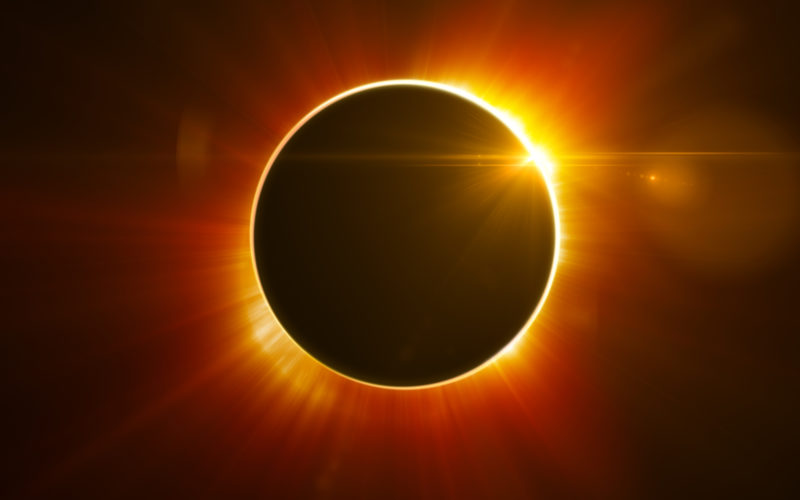How to protect your eyes during the solar eclipse

On August 21, a solar eclipse will be visible across the United States. For some people, it will be a once-in-a-lifetime experience, a sight they will remember always.
Before you look at this rare astronomical occurrence, make certain your eyes are protected.
Looking directly at the sun during a solar eclipse can cause permanent eye damage and even blindness in some cases.
I’m heading to Charleston, S.C., which is on the 70-mile swath of the country where a total eclipse will be visible. The first thing I am packing is the special solar glasses I ordered.
Regular sunglasses will not protect your eyes during an eclipse, no matter how dark they are, because the lenses do not have solar filters. It is also not safe to look through your camera, binoculars or a telescope unless the device is equipped with a special solar filter.
Genuine solar glasses are marked with the code ISO 12312-2. The American Academy of Ophthalmology has approved solar glasses manufacturers including American Paper Optics, Rainbow Symphony, Thousands Oaks Optical, and TSE 17.
There have been reports of fake solar glasses on the market so look for the code ISO 12312-2 to be sure your glasses are the real deal. NASA also is partnering with libraries across the country to provide safe glasses for eclipse watching, including a number of libraries in Delaware.
If you’re going to be observing, you need to protect your eyes the entire time.
- Look away from the sun before you put on your solar glasses. Look away from the sun again before you take them off.
- Caution your children about eclipse safety and make certain they are supervised if they are watching the eclipse.
Another way to safely observe the eclipse is pinhole projection. Pinhole projectors allow us to view the eclipse indirectly by projecting an image of the eclipse onto a surface such as paper, ground, or a wall. This does not require any special equipment, just your hands or a piece of paper. Here is a link to creating your own pinhole projector.
How can looking at the sun during the eclipse hurt our eyes? The radiation from the sun damages the retina, where the photoreceptors (rods and cones) are located. This is called solar retinopathy.
There’s no pain but damage can occur in as little as one minute, causing blurry or distorted vision in one or both eyes. Colors may appear different. It can also cause a scotoma, a stationary grey or dark spot in your central vision.
If you already have eye issues, the damage can be even greater and permanent.
There are no medications, treatments, or eye drops to treat solar retinopathy. The symptoms may improve on their own over several months to a year, but it depends on the severity and duration of exposure and any pre-existing conditions.
Your eyes need to last for a lifetime. Make sure they are safe during this once-in-a-lifetime event.